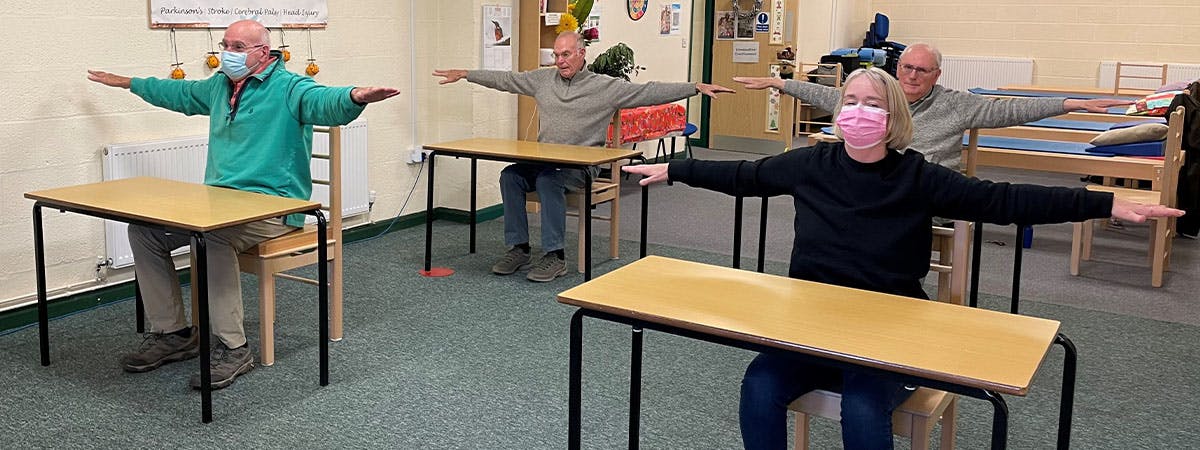In 2015, BCU developed a community of practice model for the professional development of doctoral supervisors. This model encourages supervisors to take part in a SEDA accredited course during which they take part in structured conversations, carry out a practitioner inquiry and formulate an action plan for their ongoing development. In this blog, BCU researchers highlight how a practitioner inquiry has led to an internally funded pilot project. The project is using vignette methodology to explore how supervisors and students are clarifying expectations during doctoral studies.
Authors
- Dr Carolyn Blackburn, Reader in Interdisciplinary Practice and Research with Families
- Dr Julia Everitt, Research Assistant

Doctoral supervision overall context
Major developments to doctoral education have created challenges for doctoral supervisors that are recognised by some supervisors, promoted in handbooks and through professional development. These developments include how doctoral education has become more formalised, regulated and structured and there has been a growth and diversification of the candidate population and models of study. These changes impact on doctoral supervision and it is important that supervisors are aware of these challenges as new frameworks and expectations for doctorates are developed. In response to these challenges and the professionalisation of doctoral supervision, the support for supervisors in terms of professional development has also grown (Taylor et al. 2018).
Different approaches to providing professional development for doctoral supervisors include training, communities of practice, mentoring and formal recognition systems. These approaches enable supervisors to develop and improve their practice and thus the completion rate for doctoral candidates. Different stakeholders discuss the ways in which this practice operates (Delamont et al. 2004; Lee 2012; Wisker 2012 and the UKCGE, 2019; Taylor et al. 2018).
BCU communities of practice for doctoral supervision programme
BCU in 2015 developed a community of practice model for research supervision professional development. By drawing on the knowledge of a group of practitioners, the aim is to affirm their knowledge and create a supportive environment in which to consider and perhaps reconsider their practice. The programme has been renamed the Community of Practice for Doctoral Supervision and the programme leaders are Carolyn and Dr. Sian Vaughan. The programme facilitators have all participated in a Community of Practice as a research degree supervisor, who then go on to deliver further sessions for colleagues.

The community of practice includes a series of regular conversations, with a two-month lead into the presentation of a practitioner inquiry in the final session, to enable participants to investigate their own research supervision practices ahead of sharing those findings in the community. The programme aims to position research supervision as a professional practice developed through on-going reflection and learning dialogues. Participation in this structured community of practice is a stage in a continuing professional development. This blog post will discuss the practitioner inquiry undertaken by Julia which led to an internally funded pilot project that Carolyn is also involved with.
Julia’s practitioner inquiry
I had experience of being a supervisee during my postgraduate studies and was keen to become a supervisor and develop my skills accordingly. I was a supervisee during my part-time Masters in Education (2008-2011) and Professional Doctorate in Education (2012-18). My doctorate was awarded in June 2018, following which I participated in Research Supervisors’ Training prior to joining BCU. I joined BCU in August 2019 and attended a range of supervisor’s briefings. I had been supervising students for a few months when I saw the Communities of Practice in Research Supervision advertised and registered to join.
During the Community of Practice, we ask the supervisors to share the focus of their practitioner inquiry. Julia’s inquiry was influenced by her own doctoral journey and the transition from supevisee to supervisor.
My practitioner inquiry was entitled ‘Understanding institutional processes and revealing them to the student – managing the student journey’. I was supporting students who had differing needs and I wanted to find out what the literature said about this. I reflected on my time as a post-graduate student during which I had attended a raft of events at professional associations (BERA, SRHE) such as around getting published and preparing for the viva. I became interested in how much of the research journey we should share with the student and how early. I was reflecting that just because I was finding out about the viva some four years in advance, did not mean this was a suitable practice for me to adopt with my supervisees.
 For my practitioner inquiry, I undertook a literature review that included documents from universities, handbooks aimed at both students and supervisors, reports and journal articles. I noticed the language used which appeared to be about the formal process (e.g. milestones, phases, goals, process stages, procedures and regulations). There were differences in which part of the journey should be the focus. Lee (2012) makes the point that newer supervisors will focus on the relationship where more experienced supervisors might focus on the functional aspects. Rugg & Petree (2004) suggested that students should start with thinking about the viva and working backwards.
For my practitioner inquiry, I undertook a literature review that included documents from universities, handbooks aimed at both students and supervisors, reports and journal articles. I noticed the language used which appeared to be about the formal process (e.g. milestones, phases, goals, process stages, procedures and regulations). There were differences in which part of the journey should be the focus. Lee (2012) makes the point that newer supervisors will focus on the relationship where more experienced supervisors might focus on the functional aspects. Rugg & Petree (2004) suggested that students should start with thinking about the viva and working backwards.
The literature includes a range of tools and models that are suggested to aid timely and successful completions. I wondered about the usefulness of these to the supervision process. These include supervisor to student expectation surveys and checklists. In addition is a range of models where supervisors can match their needs to those of the student (Lee, 2012). What was not clear was how supervisors and students were clarifying their expectations of each other. Taylor et al. (2018) warn that doctoral education is not just about the formal requirements, but it is also about the relationships.
Action plan
For my action plan, I stated that I planned to continue to engage with the literature as I had a developing interest in doctoral supervision as a research area. As with most research, this practitioner inquiry and my engagement with the literature opened up more questions for me around how much of the doctoral journey, supervisors share with their students. On revisiting the literature, I became interested in how supervisors are clarifying expectations with students during their doctoral studies. This interested me, as I was now aware of the complex policy arena behind what was a new developing practice for me.
Pilot project
In early 2020 we applied for internal funding to explore this practitioner inquiry further using creative research methods (vignette methodology). This application was successful and the project started in September 2020. The research methods will include virtual interviews with supervisors and students, which will include images used as stimulus material which have been collected from handbooks and journal articles.
References/links
Delamont, S., Atkinson, P. and Parry, O. (2004) Supervising the Doctorate: a guide to success. Maidenhead: SRHE & OU Press.
Lee, A. (2012). Successful Research Supervision: advising students doing research, Abingdon: Routledge.
Rugg, G. and Petre, M. (2004) The Unwritten Rules of PhD Research, Maidenhead: Open University Press.
Taylor, S., Kiley M. and Humphrey, R. (2018) A Handbook for Doctoral Supervisors, 2nd Ed. London: Routledge.
UKCGE (2019) UKCGE The Good Supervisory Practice Framework (2019) Available at: https://supervision.ukcge.ac.uk Accessed 20 November 2020
Wisker, G. (2012). The Good Supervisor. London: Palgrave Macmillan.




